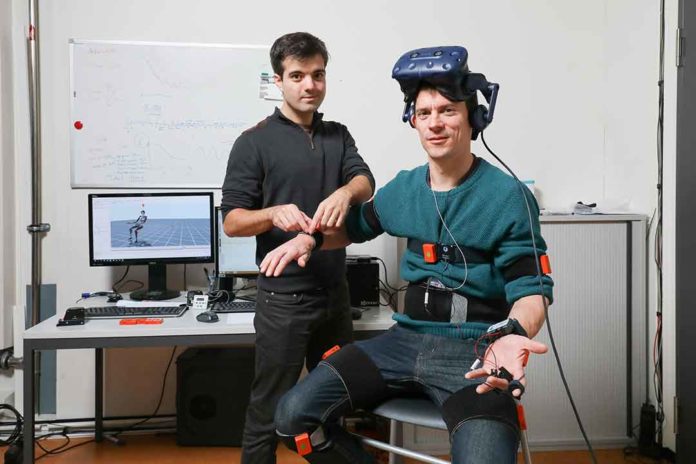Scientists at the EPFL have developed a new virtual reality program that lets users test their nerves. The VR program called VRTIGO assesses how user’s identity characteristics and related knowledge impact their reactions to anxiety-inducing situations.
Intended to be tried on an expansive example of volunteers, it will be accessible for guests to experiment with amid the Geneva International Film Festival on 5– 10 November, where it will be highlighted in the Digital Out of Competition classification.
During the festival, the volunteers will be asked to don an immersive headset and will be led to a sectioned-off area where the experiment will take place. The program will transport them to a virtual world that appears surprisingly realistic.
João Rodrigues and Erik Studer, two of the researchers who developed the program said, “Even though users consciously know it’s a virtual experience, the perception they get from their senses tells them otherwise. And their bodies react accordingly – their palms start sweating and they start walking very carefully.”
“The virtual walk into the unknown is perfectly safe and designed to be fun, but is nonetheless limited to adults over 18. We’ve gotten excellent feedback from people who’ve tried it. And if the experience starts feeling too intense, users can just close their eyes or take off the headset and their sensory perceptions will return to normal.”
The VRTIGO experience, albeit interesting, gives significant information to researchers contemplating human nervousness. The information is totally mysterious; volunteers are requested to round out a short poll on their predecessors and passionate state.
Amid the test, the system’s sensors hand-off data about clients’ physiological reactions, while accelerometers track their body positions, movements and the bearings in which they are looking. Tests are additionally taken of clients’ saliva to decide their cholesterol levels – a pointer of how much pressure they feel.
Studer said, “These tests carried out among the general public will give us data from people of many different ages and backgrounds, and help advance our research on this issue.”
